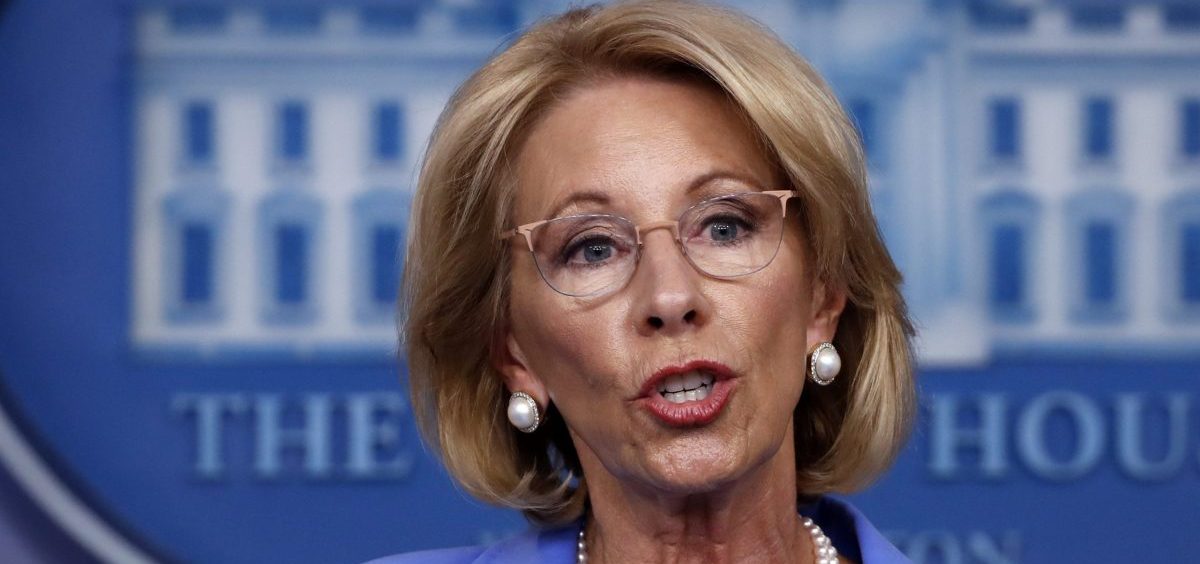News

Secretary DeVos Forgoes Waiving Disability Law Amid School Closures
By: Elissa Nadworny | NPR
Posted on:
WASHINGTON, D.C. (NPR) — U.S. Education Secretary Betsy DeVos will not recommend that Congress waive the main requirements of three federal education laws, including the Individuals with Disabilities Education Act, known as IDEA. The federal law ensures that children with disabilities have a right to a free, appropriate public education whenever and wherever schools are operating.
When Congress passed the coronavirus relief package, known as the CARES Act, they included a provision that allowed the secretary to request waivers to parts of the special education law during the pandemic. The concern was that holding strictly to IDEA and other laws could hinder schools in the urgency to move schooling from the classroom setting to online and home-based approaches.
The waiver provision, however, made disability advocates nervous. “We’re talking about waiving a civil right for our most vulnerable people in our society, children who don’t vote, who have no voice, who are relying on their parents to advocate for them,” Stephanie Langer, a Florida civil rights attorney who focuses on education and disability, told NPR in March.
But the Education Department came to the conclusions that in general, big changes weren’t needed. “While the Department has provided extensive flexibility to help schools transition,” DeVos said in a statement, “there is no reason for Congress to waive any provision designed to keep students learning.”
While the bulk of the IDEA remains unchanged, DeVos did issue limited waivers to a few sections of the law, including one that will extend the timeline schools have to offer services. The provision that bans discrimination based on disability status will go untouched.
“This is truly a celebration,” says Kelly Grillo, a special education coordinator in Indiana. “My teams are elated to keep IDEA intact. Waivers would seriously threaten equitable education.”
As schools and learning have moved online, one of the biggest challenges has been providing special education. School districts were concerned they might get sued if their digital offerings couldn’t meet the needs of their students with disabilities, though the Education Department issued guidance in March telling schools to be flexible, writing in a fact sheet that disability law “should not prevent any school from offering educational programs through distance instruction.”
Educators say that flexibility helped them improve their offerings for students. “This situation made us get creative and actually allowed us to have an all-hands-on-deck approach,” says Grillo.
But advocates warn there are still areas to watch, including in New Jersey, where parents have been asked to waive their right to sue before districts are able to provide their children with special education services.
9(MDI4ODU1ODA1MDE0ODA3MTMyMDY2MTJiNQ000))

